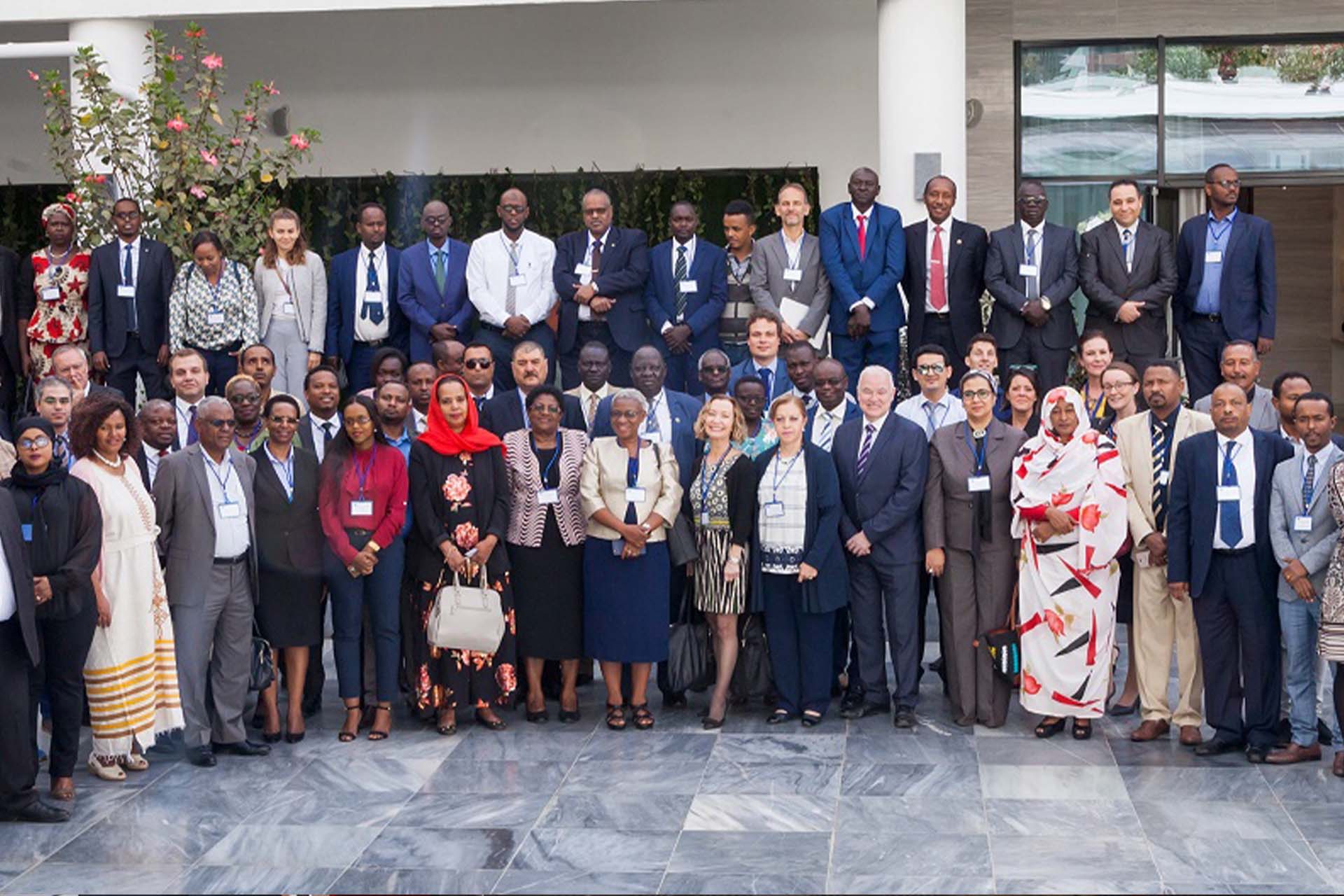
June 19, 2019 (ENTEBBE ,Uganda) – During a 2-day meeting in Entebbe this week, members of the Intergovernmental Authority on Development (IGAD) Post-Marketing Surveillance Expert Working Group reviewed and validated the results from a first-of-its kind survey on the quality of oxytocin injection and amoxicillin dispersible tablet/suspension circulating in selected cross-border areas in the IGAD region.
The validated results were disseminated today to participating Member State national medicines regulatory authorities for appropriate corrective actions. Overall, the survey showed that 21% of oxytocin injection samples tested did not meet quality specifications. This means that women who may need this product during childbirth may be exposed to substandard medicines which may not be as effective as a quality-assured product. Encouragingly, the survey found that 100% of amoxicillin samples (both dispersible tablet and suspension) tested passed all quality tests.
In addition, 72% of oxytocin injection products, 30% of amoxicillin dispersible tablet products, and 26% of amoxicillin suspension products collected were not registered by the relevant national medicine regulatory authority. Medicine registration is an important way for national medicine regulatory authorities to control the quality of medicines.
The overall objective of the 2-day meeting was to review and validate the draft report on the quality of oxytocin injection and amoxicillin dispersible tablet/dry powder for oral suspension sampled from government, private and non-governmental health care facilities in selected cross-border areas in six IGAD Member States: Djibouti, Ethiopia, Kenya, Somalia, Sudan, and Uganda. The meeting also allowed Member States to validate a report of self-assessed capacity for pharmacovigilance in the region.
Specifically, the experts from Member States:
Validated post-marketing surveillance report and pharmacovigilance self-assessment report and propose recommendations for strengthening related activities in the IGAD region;
- Developed appropriate harmonized regulatory actions to be implemented by the member states;
- Reviewed challenges and lesson learned during the regional sampling exercise; and
- Provided recommendations for actions and solutions that will help assure the quality of medicines in the IGAD region.
Oxytocin is used to induce labour, and prevent and treat excessive bleeding after childbirth (also known as postpartum haemorrhage). Postpartum haemorrhage is an important cause of maternal death.
Amoxicillin is a widely used antibiotic drug for children and adults. The dispersible tablet and suspension forms are used to treat pneumonia and other bacterial infections in children.
Oxytocin and amoxicillin are both recommended treatments by the World Health Organization and are both widely available in low- and middle-income countries, including the IGAD region.
The sample collection exercise was conducted from December 2018 to February 2019 by experts from the national medicines regulatory authorities with guidance and coordination from the IGAD secretariat, the IGAD Expert Working Group Post-Marketing Surveillance and the Promoting the Quality of Medicines (PQM) program which is funded by the U.S. Agency for International Development and implemented by the U.S. Pharmacopeia.
Medicine regulatory systems strengthening for the marginalized and vulnerable cross-border mobile populations (CBMPs) in IGAD’s arid and semi-arid lands (ASAL) are often given limited attention and not regarded as a priority. CBMP communities include people living in cross-border areas, mobile pastoralists, refugees, seasonal labourers, economically active persons and undocumented migrants as well as internally displaced persons.
With the IGAD region becoming more integrated and barriers to trade and movement of people reduced, strengthening cross-border health systems, including those that support access to quality-assured medicines, need further attention by Member States and partners.

